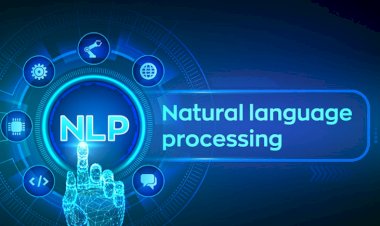The Essential Data Management Tools for B2B Businesses: A Comprehensive Guide

In today’s data-driven world, effective data management is crucial for B2B businesses aiming to gain a competitive edge. With vast amounts of data generated daily, having the right tools to manage, analyze, and utilize this information is essential for informed decision-making, enhancing customer relationships, and driving business growth. This article explores some of the most effective data management tools for B2B businesses and how they can transform your data into a powerful business asset.
1. Customer Relationship Management (CRM) Systems
Customer Relationship Management (CRM) tools like Salesforce, HubSpot, and Zoho CRM are indispensable for managing customer data in B2B environments. These platforms offer robust features for tracking customer interactions, managing sales pipelines, and automating marketing efforts. By centralizing customer data, CRM systems help businesses personalize communications, improve customer service, and increase sales efficiency.
2. Data Integration Tools
Data integration is critical for B2B businesses that rely on multiple data sources. Tools like Talend, MuleSoft, and Informatica allow businesses to connect disparate systems, ensuring that data flows seamlessly across the organization. These tools enable companies to integrate data from various sources, including databases, cloud services, and applications, providing a unified view of the data that drives better business decisions.
3. Data Analytics Platforms
For B2B businesses, understanding data patterns and insights is key to developing effective strategies. Data analytics platforms such as Tableau, Power BI, and Google Analytics provide powerful visualization and analysis capabilities. These tools help businesses track performance metrics, identify trends, and make data-driven decisions that enhance operational efficiency and improve customer satisfaction.
4. Data Governance and Compliance Tools
In the B2B space, maintaining data integrity and compliance with regulations such as GDPR and CCPA is paramount. Data governance tools like Collibra, Alation, and IBM InfoSphere ensure that data is accurate, consistent, and compliant with industry standards. These tools provide frameworks for data stewardship, auditing, and quality management, helping businesses avoid costly fines and reputational damage.
5. Master Data Management (MDM) Solutions
Master Data Management tools like Informatica MDM, SAP Master Data Governance, and Oracle MDM are essential for creating a single, reliable source of truth across the organization. These tools ensure that master data—such as customer, product, and supplier information—is consistent and accurate, enabling better decision-making and more effective data utilization across various business units.
6. Big Data Tools
As B2B businesses handle increasingly large and complex datasets, big data tools like Apache Hadoop, Spark, and Cloudera become vital. These platforms enable the storage, processing, and analysis of vast amounts of data in real time, helping businesses uncover hidden insights and make predictive decisions that drive growth.
7. Data Security Solutions
Data security is a top priority for B2B companies, especially when dealing with sensitive customer and financial information. Tools like McAfee Total Protection, Symantec, and IBM Guardium offer comprehensive security solutions, including encryption, threat detection, and access control. These tools help businesses protect their data from breaches, ensuring that customer trust is maintained and regulatory requirements are met.
8. Data Warehousing Solutions
Data warehousing tools like Amazon Redshift, Snowflake, and Google BigQuery provide B2B businesses with scalable and efficient ways to store and manage large volumes of data. These platforms allow for the consolidation of data from various sources into a single repository, making it easier to perform complex queries, generate reports, and conduct business intelligence analyses.
Conclusion
In the B2B sector, the ability to manage and utilize data effectively is a game-changer. The right data management tools not only streamline operations but also provide critical insights that can lead to improved customer relationships, enhanced decision-making, and sustained business growth. As the volume and complexity of data continue to grow, investing in these tools will become increasingly important for businesses looking to stay ahead in a competitive landscape.




















